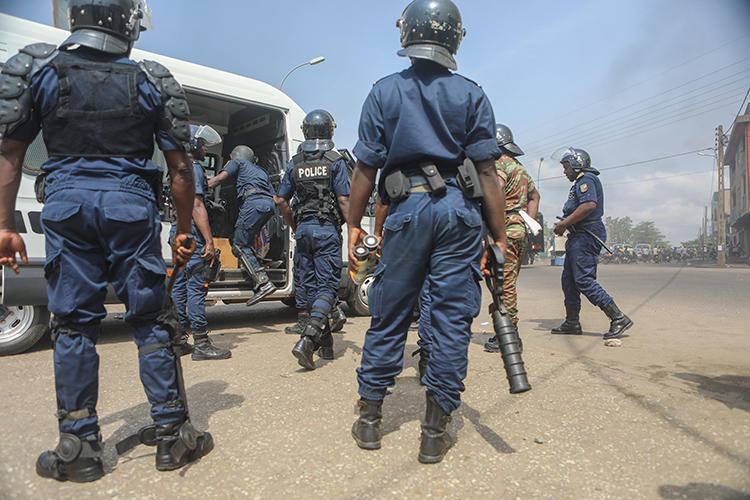Goma, Congo, April 30, 2019 — Beninese authorities should drop their investigation into Casimir Kpedjo, editor of the privately owned daily Nouvelle Economie, and allow him to report and publish news without fear of harassment or being jailed, the Committee to Protect Journalists said today.
On April 18, police arrested Kpedjo at his home in Cotonou, Benin’s economic capital, and held him at a local police station until April 23, when the country’s special prosecutor for economic crimes and terrorism accused the journalist of violating Article 550 of Benin’s digital code by allegedly spreading false information about the Beninese economy on social networks, according to the journalist and his lawyer, Renaud Abgodjo, who both spoke with CPJ.
Kpedjo was released later on April 23, Abgodjo told CPJ. The journalist has technically not been charged with a crime, but is required to appear in court on May 2 to offer his defense against the accusations, Abgodjo said.
The accusations stem from two articles concerning the country’s economy that were featured in the April 17 edition of Nouvelle Economie and published on the newspaper’s and the journalist’s Facebook pages, Abgodjo told CPJ.
Kpedjo told CPJ that Beninese authorities confiscated his phone and computer upon his arrest. He said that police copied the data from his computer and later returned it, but have not returned his phone.
“Authorities in Benin should drop all legal proceedings against Casimir Kpedjo, return his phone, and ensure that journalists in Benin are able to report the news freely,” said Angela Quintal, CPJ’s Africa Program coordinator, from Johannesburg. “This arrest and detention are clearly meant to intimidate Kpedjo into silence, and the ongoing legal proceedings send a chilling message that journalists in Benin are not safe to cover the economy.”
If found guilty, Kpedjo faces a maximum penalty of six months in prison or a fine of one million CFA francs ($1,692), according to Blanche Sonon, the president of Social Watch Benin, a local development and justice organization, who spoke with CPJ.
Kpedjo told CPJ that he was denied access to a lawyer and was cut off from communication with his family during his detention.
When contacted by CPJ, Oswald Homeky, Benin’s minister of tourism, culture, and sports, who also functions as a government spokesperson, declined to comment because of the ongoing legal proceedings.
On April 28, Benin held legislative elections, during which access to the internet and social media services was blocked, according to the internet freedom and governance organization NetBlocks.
